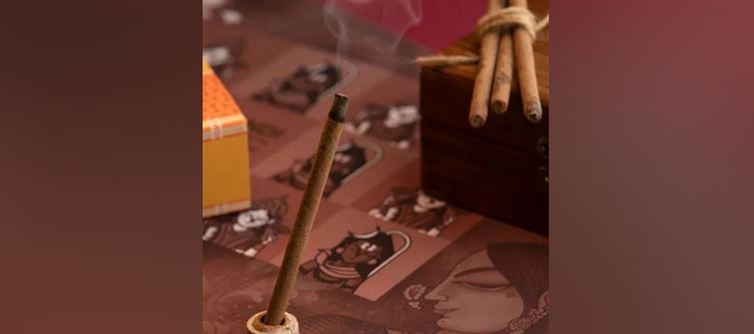
For centuries, sambrani (benzoin resin) has been a part of indian homes and rituals. Its soothing aroma, calming smoke, and spiritual symbolism have made it a favorite in temples and households. But modern research is sounding an alarm: what feels sacred to tradition may be secretly harming your health. Here are the seven eye-opening truths about sambrani smoke you must know:
1. The Smoke Isn’t Just Fragrance — It’s Chemistry
When sambrani burns, it doesn’t just release aroma. It produces particulate matter, volatile organic compounds (VOCs), and toxic residues that can stay in the air for hours. Breathing this in repeatedly is far from harmless.
2. Trigger for Asthma and Respiratory Diseases
If you or your family members suffer from asthma, COPD, or allergies, Sambrani smoke can make things worse. The tiny smoke particles irritate the airways, leading to coughing, wheezing, and breathlessness.
3. Microscopic Particles That Damage the Lungs
The fine particulate matter in sambrani smoke can travel deep into your lungs, where it causes inflammation, oxidative stress, and tissue damage. Over time, this may increase the risk of chronic respiratory problems.
4. Toxic air Indoors
Burning sambrani indoors contributes to indoor air pollution — a silent killer that is often worse than outdoor pollution. VOCs from the smoke linger in enclosed rooms, making your living space unsafe to breathe in.
5. Newborns and Babies Are at High Risk
Infants have fragile, developing lungs. Exposure to sambrani smoke can lead to breathing difficulties, reduced immunity, and long-term respiratory issues. Experts strongly advise against burning sambrani around babies.
6. Tradition vs. Science: A Reality Check
While sambrani has cultural and spiritual importance, tradition should not blind us to science. The same rituals that bring mental peace may silently damage physical health if done without caution.
7. Safer Alternatives Exist
If you love the fragrance, switch to essential oil diffusers with natural oils like lavender, sandalwood, or eucalyptus. They provide aroma and calm without the harmful smoke. Choose high-quality oils and use them wisely.
⚡ Bottom Line:
Sambrani is not just “sacred smoke.” It carries hidden health hazards that most people ignore. Before you light the next piece of resin, remember: what feels divine for the spirit may be damaging for the lungs. Choose safer alternatives — your health and your family’s is worth more than blind tradition.




 click and follow Indiaherald WhatsApp channel
click and follow Indiaherald WhatsApp channel